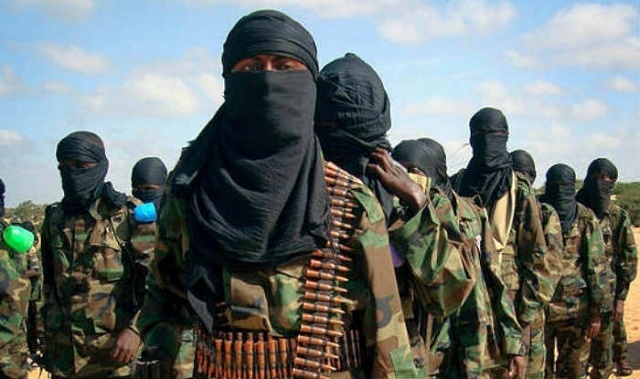Mozambique: Terrorists Kill 8 People In Two Attacks

At least eight people have been killed in two separate attacks this week by terrorists in the north of Cabo Delgado, HumAngle has learned.
The attacks took place in the main village of Mocimboa da Praia and Macomia in the administrative post of Chai, from Tuesday at about 8p.m. to Wednesday at 6p.m., resulting in the death of 8 people.
According to eyewitnesses, who were still at the village before fleeing to the forest, the situation worsened with each passing day.
“Everything is bad at home, the situation is getting worse”, a source said.
On Tuesday, the terrorists entered the Mocimboa headquarters at night, killed a person, destroyed the mill and took a goat.
On Wednesday, they entered Mocimboa headquarters again and the population fled to nearby bush.
Earlier, on Wednesday morning, the terrorists were in Macomia near Chai in the Tandacua village where they beheaded seven people.
Sources confirmed that even with the military presence on the ground, they conducted their attacks without resistance.
Later that Wednesday, Mozambique’s defense and security forces entered Mocimboa da Praia to find the village empty without people.
In a video footage, Mozambique military can be seen prowling the village headquarters showing customs off and other government buildings vandalized and burnt.
Nampula Province is a “recruitment hotbed”
Meanwhile, experts consider the province of Nampula, in the northern region, as the recruitment hotbed for islamists groups operating in the mineral rich province of Cabo Delgado.
Mozambican researcher Salvador Forquilha, confirmed it on Tuesday during a “webinar” on the topic “Can Nampula help to think about the conflict in Cabo Delgado?”, promoted by the Institute of Social and Economic Studies (IESE), an independent Mozambican think tank entity.
“Cabo Delgado insurgency uses Nampula as a hotbed for recruiting,” said Forquilha, director of IESE and who has conducted comprehensive research work on terror activities and armed violence in that province.
He said, “what boosts recruitment for operatives in Cabo Delgado is the fact that Nampula (neighbouring Cabo Delgado to the south), is the existence of various forms of Islam in both provinces and extreme poverty.”
Nampula is home to the majority of the Muslim population in Mozambique. This plays a pivotal role in the recruitment of young people to the armed groups operating in Cabo Delgado.
“Young fishermen from coastal districts of Nampula, in a situation of poverty and in conflict with the State, see prospects of migrating to Cabo Delgado, where they end up joining the insurgency”, he added.
Another scholar, Lorenzo Macagno, associate professor in the Department of Anthropology at the University of Paraná, Brazil, argued that the action of armed groups in Cabo Delgado can be understood as an expression of ‘jihadist’ tensions that have been marking Islam in Mozambique for several decades.
“I knew, in the province of Nampula, a hospitable and peaceful Islam but I know that it has also been marked by internal tensions and that now they are experiencing a ‘jihadist’ extrapolation in Cabo Delgado,” he said.
This researcher, who did fieldwork on Islam in Nampula province, argued that the groups operating in Cabo Delgado advocate the return to a utopia of exemplary and anti-secular islam.
“[The armed groups] present themselves as messianic and with an agenda for the salvation of an Islam that fights Muslims considered apostates and that collaborate with the secular state”, characterized the investigator, quoted by the portuguese news agency Lusa.
For the scholar, poverty, state repression and the presence of foreign capital in natural gas projects in Cabo Delgado are not enough to explain the armed insurrection in the province because those factors are present in various parts of Africa and the world, but they are not why there are “‘jihadist’ ventures”.
On his part, Eric Morier Ginoud, a researcher and professor at Queen’s University, Northern Ireland, warned of the risk of demonizing Islam.
“There is no form of fundamentalism, there are several fundamentalisms and not all are violent and not all translate into ‘jihadism’,” said Ginoud, with studies on Mozambique.
The understanding of a possible influence of Islam in the violence in Cabo Delgado involves understanding the dynamics of this religion outside Islamic institutions, namely the development of sects, the researcher added.
Cabo Delgado has been the scene of actions by armed groups since October 2017, which, according to the United Nations, forced 250,000 people to flee from districts affected by the violence, further north of the province.
The provincial capital, Pemba, has been the main safe haven for people seeking shelter and safety in Cabo Delgado, but some prefer to flee to other places, including Niassa and Nampula, neighboring provinces.
The armed conflict in that province has already killed at least 1,300 people, and some of the actions of the armed groups have been claimed by the Islamic State (IS) jihadist group.
Support Our Journalism
There are millions of ordinary people affected by conflict in Africa whose stories are missing in the mainstream media. HumAngle is determined to tell those challenging and under-reported stories, hoping that the people impacted by these conflicts will find the safety and security they deserve.
To ensure that we continue to provide public service coverage, we have a small favour to ask you. We want you to be part of our journalistic endeavour by contributing a token to us.
Your donation will further promote a robust, free, and independent media.
Donate HereStay Closer To The Stories That Matter




